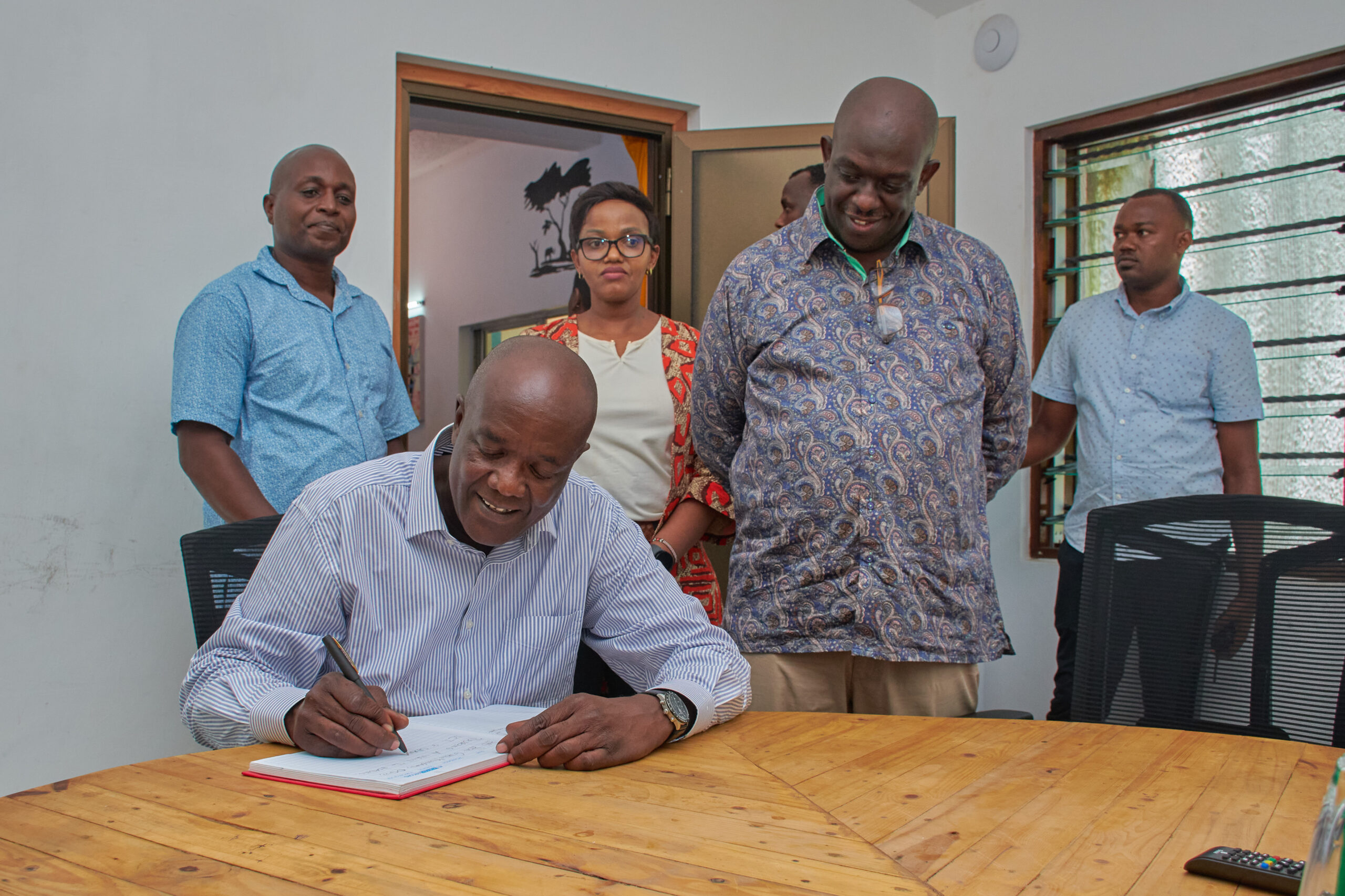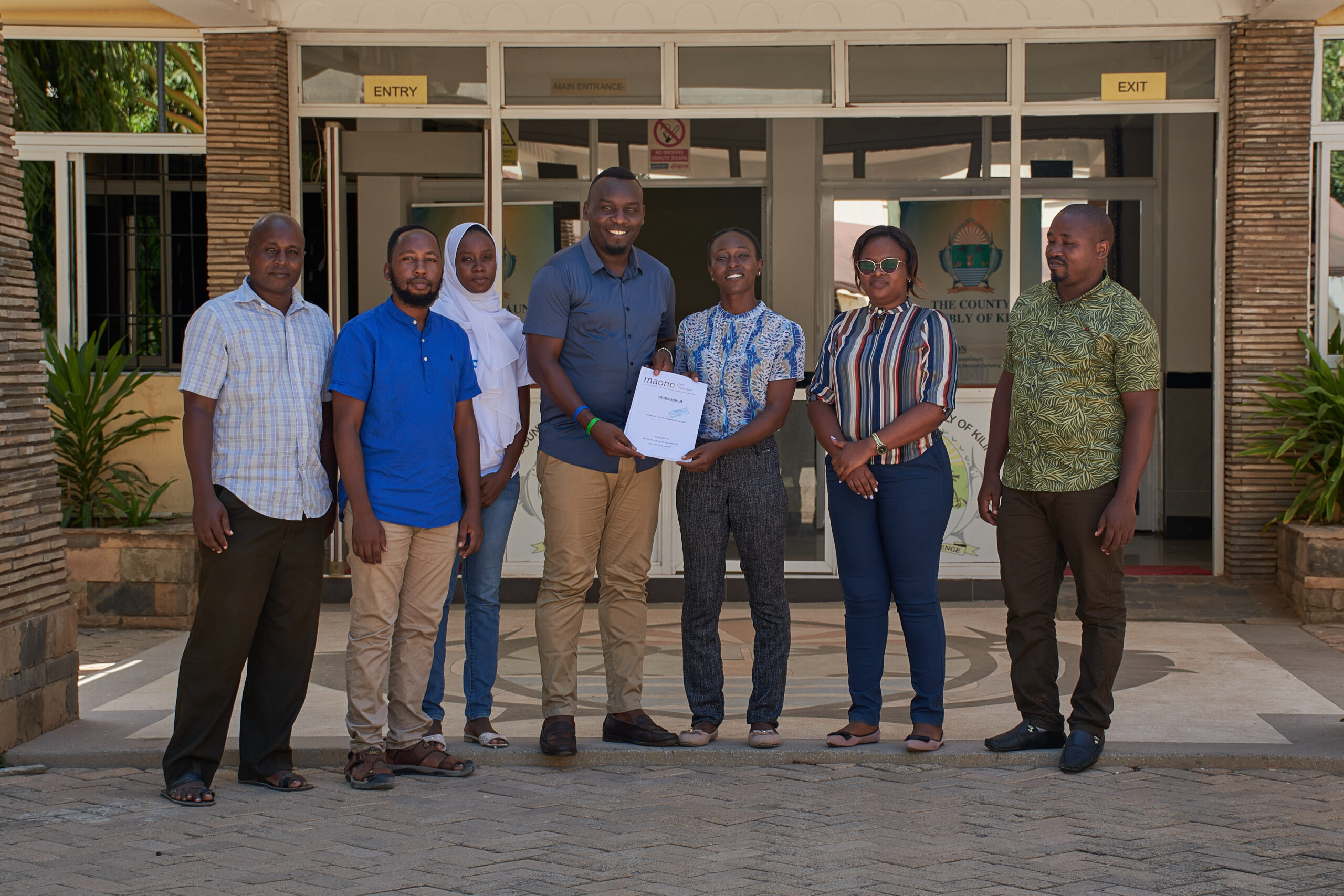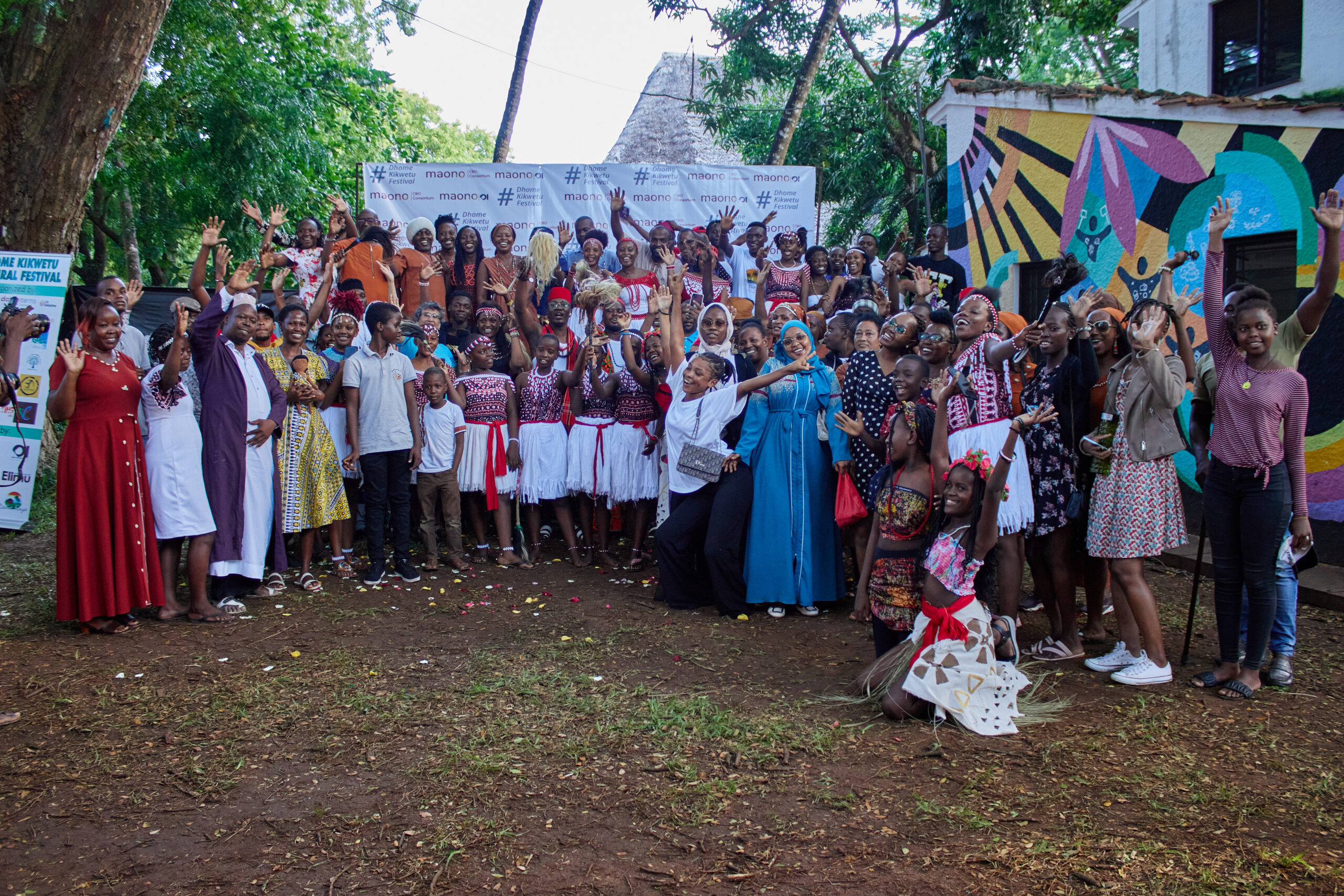
DHOME KIKWETU CULTURAL FESTIVAL BY OUR CHANGEMAKERS.
Last week, one of the biggest cultural events in Kilifi County was held at Maono Space. Dubbed the “Dhome Kikwetu Cultural Festival”, the event brought together more than 350 residents of Kilifi from different cultures such as Mijikenda, Swahili, Italians, Russians, Kikuyu, Turkana, Maasai, Luo, Luhya, Kisii, Embu, Meru among many others. It also attracted local government leaders, including Hon. Dr. Ruth Dama, CECM for Culture in Kilifi County, Hon. Teddy Mwambire, Speaker of the County Assembly of Kilifi. Other notable leaders included Hon. Fikirini Jacobs, Hon. Maur Abdallah Bwanamaka, Hon. Betty Kache Mwavua, Hon. Aisha Nizar, Mr. Joshua AC.C Magarini, Mr. Dadu Chome, and Miss Matilda Baga.
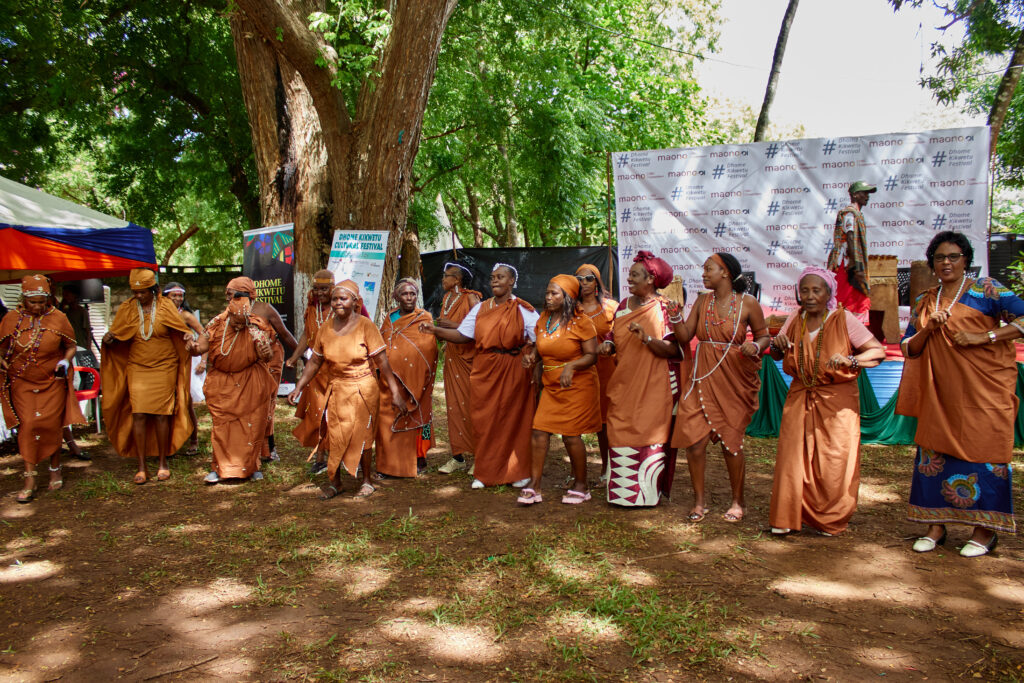
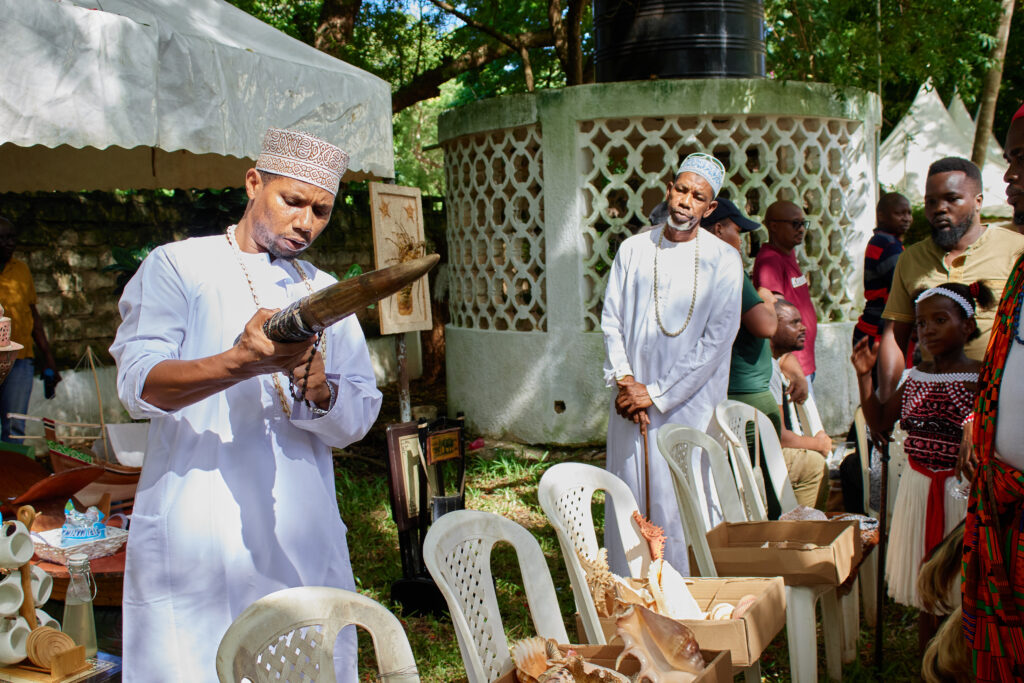
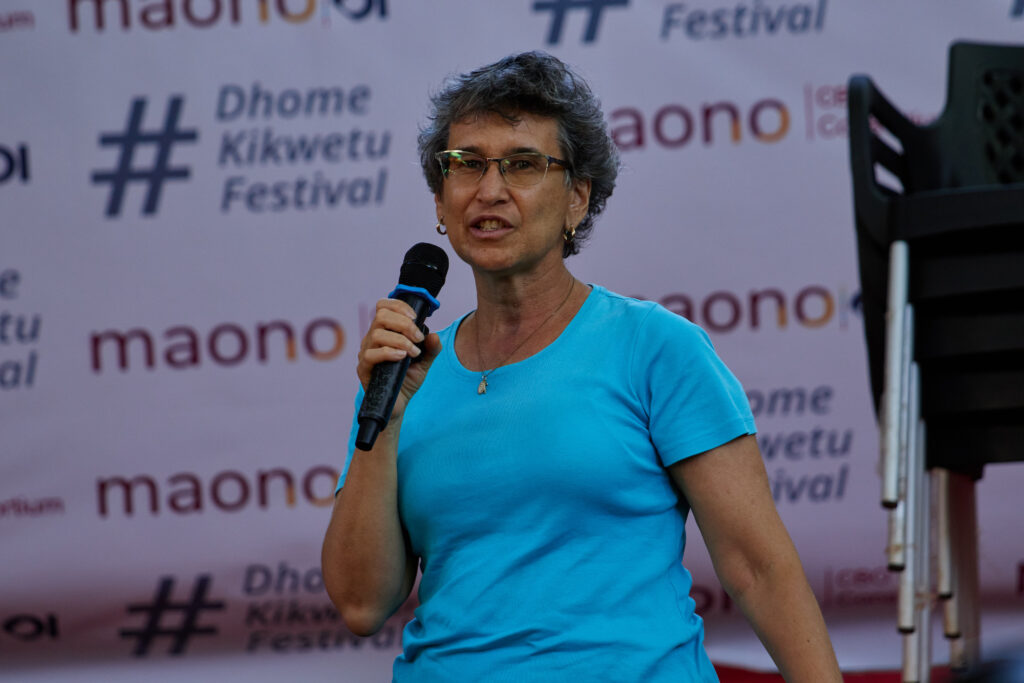
Kilifi county, with its rich tapestry of diverse cultures, often faces challenges such as cultural disconnects and societal divisions. The festival sought to rekindle Kilifi residents’ connection with their cultural roots, by featuring cultural displays of dance, music, food, drinks, artifacts, storytelling as well as having important discussions around how culture can be used to foster citizen participation in governance.
Click HERE to see the colour of the event.
The organisers, who are members of Maono Space, hoped that the event would, ‘spark conversations about tolerance and the need to be united for the common goal of holding the government into account.’ For development to happen, people need to come together and speak in one voice so they can communicate their needs and demand better services from the government.
‘Many of us young people have very little knowledge about where we came from: why we are the way we are. Through this event, we want to combat the erosion of cultural knowledge, tribalism, and discrimination by showcasing the beauty of Kilifi County’s collective cultures through performances, exhibitions, and dialogues’ said Azani Thoya, the Founder of Girls to Women Foundation.
Also read: WARD RESIDENT’S FORUMS – CONNECTING CITIZENS & GOVERNMENT.
Amid the enjoyment, there were panel discussions. The first one delved into how traditional African societies tackled social issues and maintained social cohesion, offering valuable lessons for today’s challenges. It was pointed out that the culture of corruption and individualism that we see today has not always been there. ‘African cultural values insist on kindness and humanity,’ said Mr Muhammed Baher, a panelist.
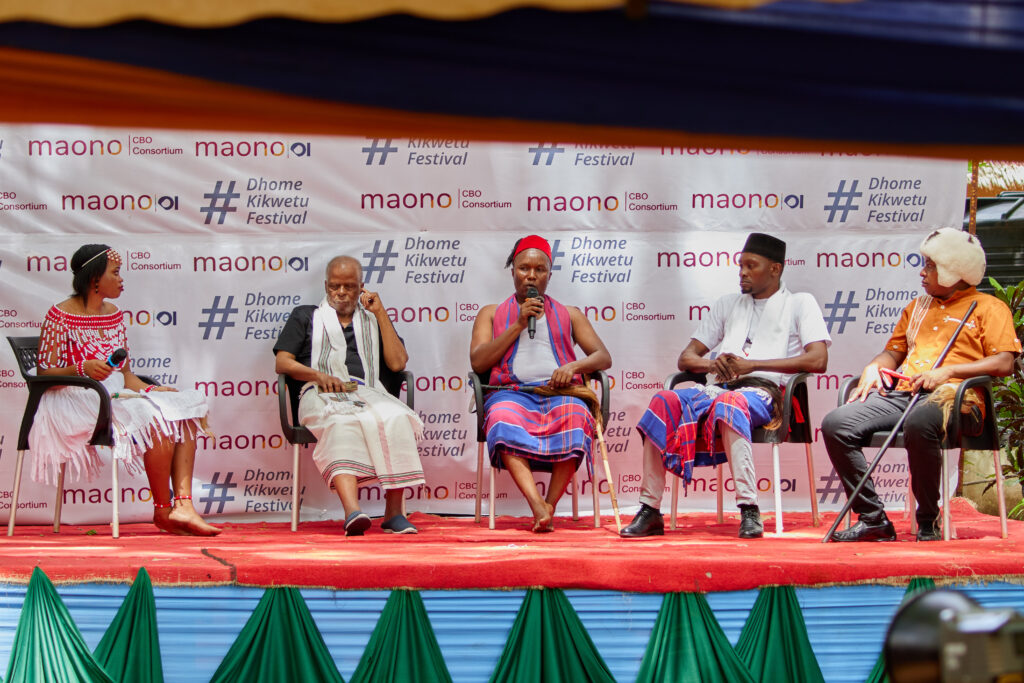
They also discussed the importance of involving the youth in culture-related discussions, so that they can have a sense of ownership and carry forward the good values.
‘Culture is not for old people or about the way people used to live way back. It is the way we live today’
observed Mr. Dadu Chome, Sub County Admin Malindi.
The second panel focused on the role of cultural appreciation in fostering development and peace in our communities, as Mr. Stan Kiraga noted, ‘It is through coming together and appreciating our differences that we can push for development to happen in Kilifi County. Demanding and advocating for change as one voice is a powerful tool for progress.’
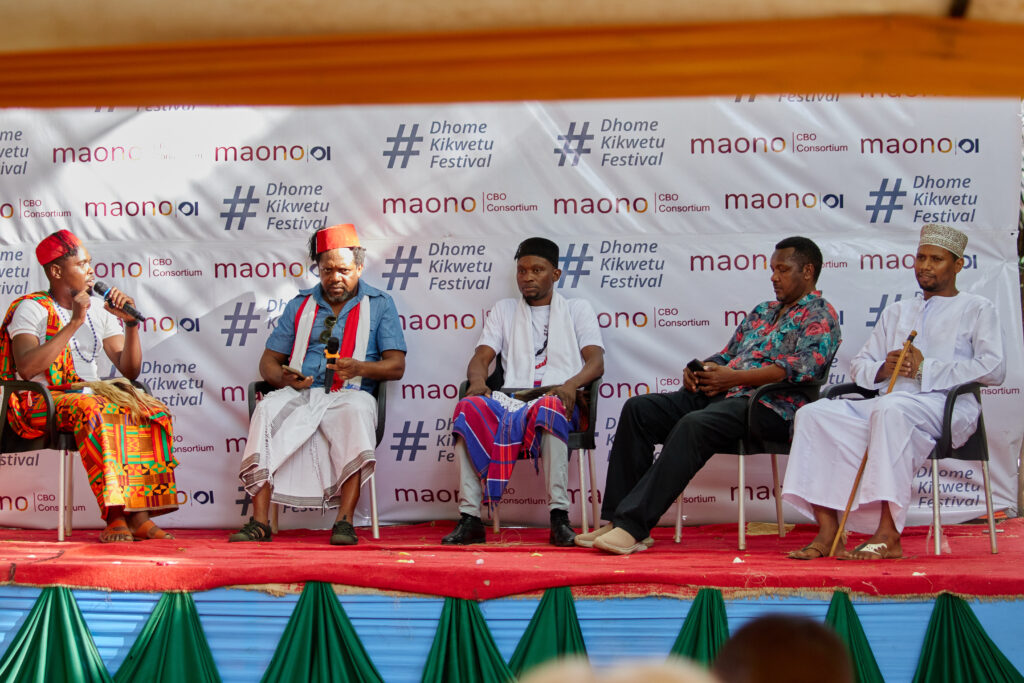
In addition, it came out strongly from the conversations that there is a need to have national values taught to citizens so they can be the compass that keeps us pointed to the right heading. ‘If I ask you here in the audience, which are the Kenyan values? Many of you will be guessing.’
The success of the Dhome Kikwetu Cultural Festival underscores the power of organization and collaboration among local change-makers. When community leaders come together with a shared vision of improvement, they can create significant events that attract both local communities and government attention.
We firmly believe that change begins at the grassroots level. Often, local change-makers are unaware of the immense power they hold, especially when they collaborate. Together, they can create significant impacts with minimal resources, accelerating the process of change in their communities.
Over the past two years, our mission has been to unite these local change-makers by providing them with a space and activities for networking, capacity building, and both personal and organizational development. This fosters collaboration and the creation of impactful initiatives like the Dhome Kikwetu Cultural Festival.
We are proud to say that the key to accelerating development lies in empowering local change-makers with the necessary resources to effect change. They possess an intrinsic understanding of their communities and are best positioned to drive tangible change. By supporting and enabling them, we can foster sustainable development and unity in our diverse society.

